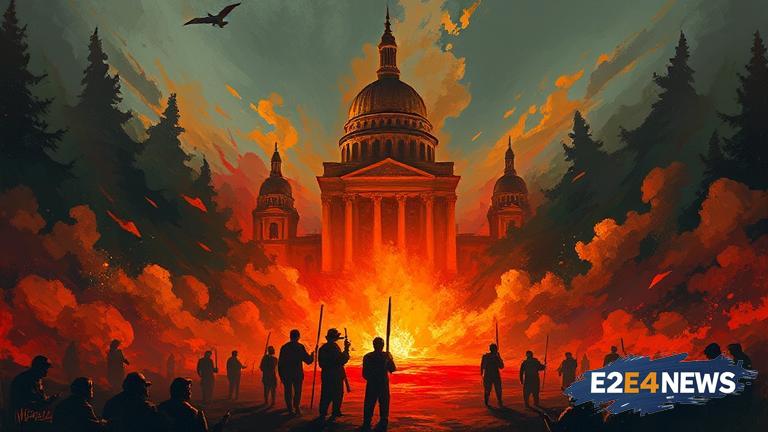The concept of ‘The Big Lie’ has been a persistent theme in politics and social discourse, referring to the deliberate spread of false information to manipulate public opinion. Recently, this phenomenon has experienced a resurgence, with potentially devastating consequences. The Big Lie is a tactic used to deceive people into believing a false narrative, often for political gain or to further a particular agenda. This strategy relies on the repetition of falsehoods, which can eventually become ingrained in the public consciousness. The rise of social media has facilitated the dissemination of misinformation, allowing The Big Lie to spread rapidly and reach a wider audience. As a result, it has become increasingly challenging to distinguish fact from fiction, leading to a breakdown in trust and a polarization of society. The consequences of The Big Lie can be far-reaching, influencing elections, shaping public policy, and even inciting violence. It is essential to recognize the signs of The Big Lie, including the use of emotive language, cherry-picked facts, and the demonization of opposing viewpoints. By being aware of these tactics, individuals can develop a critical eye and make informed decisions. Furthermore, it is crucial to promote media literacy, encouraging people to verify information through reputable sources before accepting it as true. The responsibility to combat The Big Lie lies not only with individuals but also with institutions, such as the media, educational systems, and governments. These entities must prioritize fact-based reporting, critical thinking, and the promotion of nuanced discussion. The revival of The Big Lie has significant implications for democracy, as it can undermine the integrity of the electoral process and erode trust in institutions. In addition, the spread of misinformation can have real-world consequences, such as the exacerbation of social tensions and the manipulation of public opinion. To mitigate these effects, it is vital to foster a culture of critical thinking, encouraging people to question information and seek out diverse perspectives. The Big Lie can also have a profound impact on mental health, as the constant exposure to misinformation can lead to anxiety, confusion, and a sense of disorientation. In conclusion, the resurgence of The Big Lie is a pressing concern that requires immediate attention and action. By understanding the mechanisms behind this phenomenon and promoting a culture of critical thinking, we can work towards a more informed and discerning public. Ultimately, the fight against The Big Lie is a collective responsibility, requiring the efforts of individuals, institutions, and society as a whole. The Big Lie has been used throughout history to manipulate public opinion, and its revival is a stark reminder of the need for vigilance and critical thinking. As we navigate the complexities of the modern world, it is essential to remain aware of the potential for deception and to prioritize fact-based information. The consequences of inaction could be severe, leading to a further erosion of trust and the destabilization of society. Therefore, it is crucial to address The Big Lie head-on, promoting a culture of critical thinking and media literacy to ensure a more informed and discerning public.
